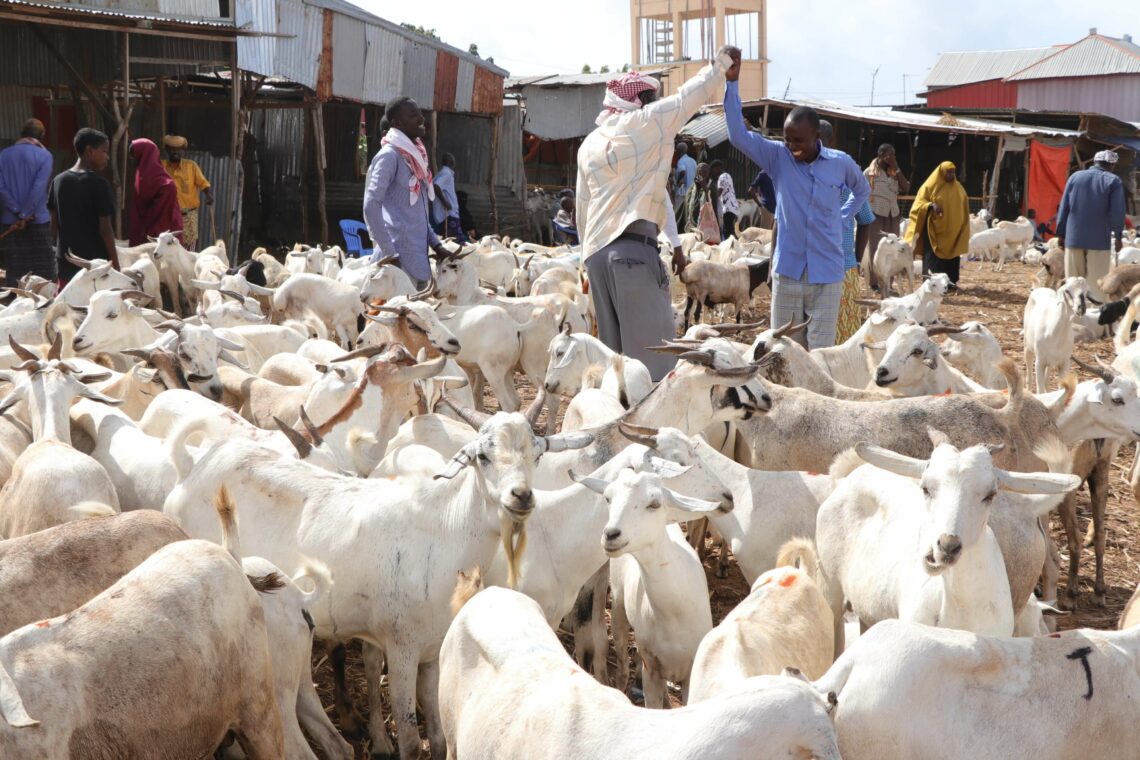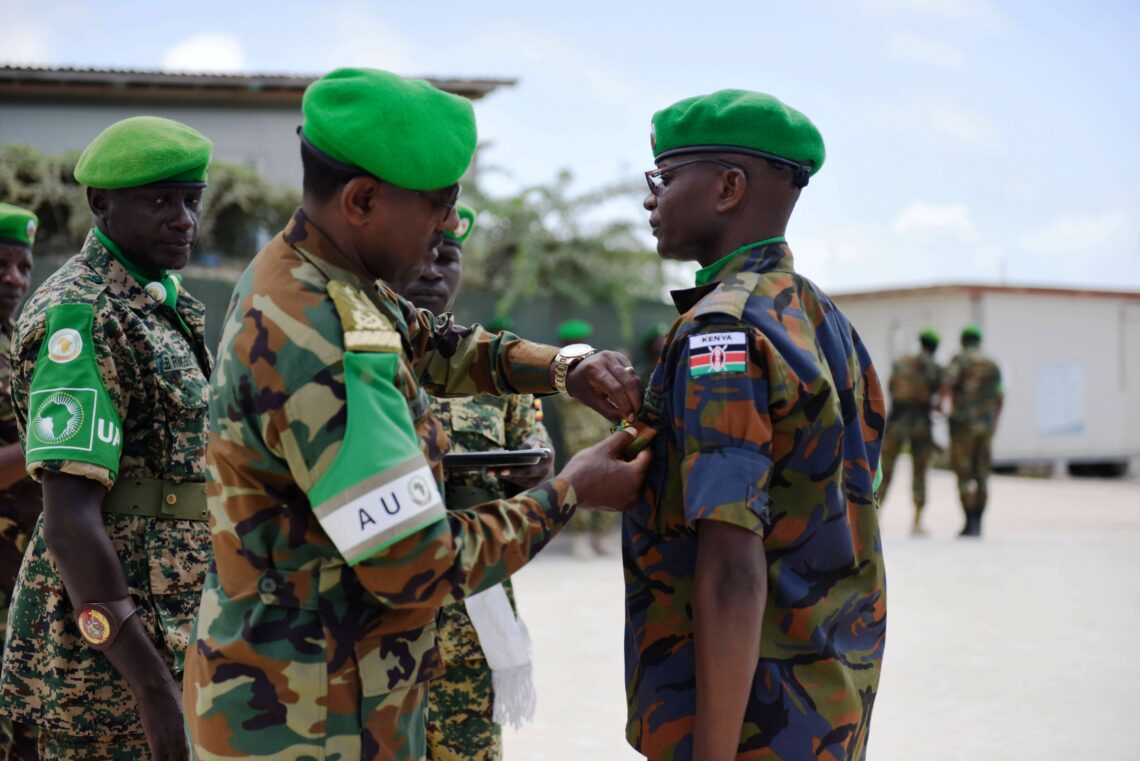A fragile state in a troubled region
Given the challenges that Somalia faces, the upcoming elections are unlikely to stabilize the country. The terrorist organization al-Shabaab is expanding, while local governments clash with federal security forces. The basic building blocks of statehood are still absent.

In a nutshell
- The government of Somalia faces challenges to control the country
- Al-Shabaab could expand if a power vacuum occurs
- If external actors withdraw, chaos could ensue
In Somalia, the parliamentary and presidential elections, scheduled for late 2020 and early 2021, were supposed to be the culmination of a long and painful process of state-building and stabilization.
However, despite the efforts deployed in the past few years, the country is still facing internal political tensions, security threats and a looming humanitarian crisis. Given the challenges, events in Somalia will likely confirm, once again, that attempts at a timely transition of power are largely doomed to fail.
Never-ending transition
After the fall of Jaalle Mohamed Siad Barre’s regime in 1991, Somalia entered a process of political disintegration, lawlessness and violence. Between 2000 and 2007, the Islamic Courts Union (ICU) brought a measure of stability to the country. However, in 2007 the ICU was dismantled after being defeated by the Transitional Federal Government (TFG) with the support of Ethiopian troops. Since then, the TGF has struggled to secure control over the country and contain the al-Shabaab jihadist group.
In 2017, the election of Mohamed Abdullahi Mohamed was considered a major step toward political stabilization, despite an expansion of al-Shabaab’s operational capacity under his rule. However, as the end of his term, in February 2021, draws near, it is becoming clear that the state cannot meet even the basic requirements to hold valid elections.
Without the basic foundations of a state, elections will not lead to stability.
The first of the challenges in Somalia is political. The federal government lacks both the legitimacy and capacity to effectively rule over the country’s territory. Somalia’s power balance remains characterized by clashing elites, clan-based loyalties and the proliferation of militias struggling for access to resources and strategic routes. The state is widely perceived as absent or inefficient. Under President Abdullahi Mohamed’s leadership, the federal government has pushed to centralize power by trying to exert control over states’ internal affairs, quashing any attempt they make to expand their autonomy.
In Jubaland, for example, where the state president is a close ally of the Kenyan government, Mr. Abdullahi Mohamed has refused to accept the result of the 2019 local elections. He has deployed troops to the region, leading to clashes with the state’s security forces. Political instability, uncertainty and fragmentation are also fueled by tensions between regions with different political statuses, such as the ongoing dispute between the semiautonomous state of Puntland and the self-proclaimed independent Somaliland over disputed territories in Northern Somalia.
As tensions between the federal government and the states increase, basic and urgent tasks – drafting and adopting a new constitution, establishing an effective judiciary system, reforming the tax system, building a professional army – have become increasingly difficult. Some progress has been made, including signing a new electoral code into law. But without the basic foundations of a state, elections will not lead to stability.
A second obstacle to stabilization is chronic insecurity. The United Nations-mandated African Union Mission in Somalia (AMISOM), in the country since 2007, has offered a relative sense of security and was instrumental in containing al-Shabaab. However, according to the 2018 UN Security Council Resolution 2431, UN security responsibilities must be transferred to the Somali National Armed Forces, Police Force and National Intelligence and Security Agency (NISA) by 2021. The problem is that, despite generous funding, Somalia’s security forces are not a professionally trained army. Its personnel is unprepared to safeguard a territory populated by armed actors with different and sometimes conflicting goals, especially when the main political players disagree on basic matters, such as funding and command hierarchy.

Recent attacks in areas controlled by AMISOM and the federal government suggest that al-Shabaab, which still controls vast swaths of the Somali countryside, is taking advantage of the void left by the coronavirus pandemic. The organization first emerged as an armed youth wing of the ICU. By embracing the rhetoric of a defensive jihad against a corrupt and illegitimate government backed by infidel foreigners, al-Shabaab has managed to recruit young Somalis and secure a base of support throughout the country. Furthermore, the group’s intelligence service – the Amniyat – is known for its efficiency and wide range. Recent claims by Kenyan authorities that NISA maintains a close relationship with al-Shabaab must be taken with a grain of salt given the ongoing tensions between Nairobi and Mogadishu, but the possibility cannot be ruled out.
Finally, a third challenge is the country’s fragile humanitarian situation. Somalia, like Ethiopia, Kenya, Uganda and Tanzania, has been severely hit by a plague of locust swarms which, according to the Food and Agriculture Organization of the United Nations (FAO), poses further challenges as this damaged all of the country’s staple crops of maize and sorghum.
Heavy floods, a cholera outbreak and the measures taken to address the coronavirus pandemic are also affecting food security and increasing the number of internally displaced people (estimated at 2.6 million, in a population of around 15 million).
Regional outlook
There are multiple destabilizing factors in the region: the ongoing conflict in South Sudan, the escalation of ethnic violence in Ethiopia, terrorist attacks on the Swahili coast, and the proliferation of arms arriving from Yemen through the Gulf of Aden.
The federal government lacks both the legitimacy and capacity to effectively rule over the country’s territory.
Relations between Somalia and Kenya have also reached a new low. Since 2011, Nairobi has been an important ally in the fight against al-Shabaab in Somalia. However, the Jubaland conflict, an ongoing maritime dispute (now awaiting a decision of the International Court of Justice) and Nairobi’s allegations that the Somali intelligence services collaborate with the al-Shabaab, have all contributed to tensions between the two countries.
Scenarios
A successful transition in 2020-2021 would require, among other developments, parliamentary and presidential elections. While this scenario was already unlikely in early 2020, it has become nearly impossible. The instability generated by political fragmentation, weak legitimacy and chronic insecurity is now aggravated by natural disasters, an adverse economic outlook and regional security threats. In this context, three scenarios must be considered.
Protracted transition
Under this first and most likely scenario, elections and the transfer of responsibility from AMISOM to Somalia’s security forces will be postponed. Regional and international players will continue to play a determinant role in the country in both the short and medium-term. President Abdullahi Mohamed will evoke sanitary reasons to reschedule the parliamentary and presidential elections, but opposition forces, including the Forum for National Parties and regional authorities, will likely contest his decision.
Rising political tensions will further cripple the already fragile federal government. The continuous presence of regional and international actors – including the United States, through the U.S. Africa Command (AFRICOM) – will contribute to contain al-Shabaab advances into strategic areas, but military gains will not translate into political gains. While falling short of a Hobbesian war of all against all, this first and most likely scenario will not lead to a successful transition. The presence of AMISOM and other regional and international actors will prevent the Somali government from acquiring the necessary legitimacy to form a viable federal state. Meanwhile, the country’s humanitarian and economic outlook will deteriorate.
Fragmentation
A slightly less likely scenario is one in which power in Somalia becomes even more fragmented because of a partial retreat of regional and international players. The nonrenewal of the UN Assistance Mission in Somalia (UNSOM), whose mandate is due to expire on June 30, and uncertainty regarding the future of AMISOM could lead to escalating tensions – and possibly clashes – between the federal government and the states. The reduction of aid flows and remittances due to the coronavirus pandemic would prevent the transitional government from addressing economic and humanitarian issues, also making it harder to negotiate with the opposition and curb aspirations for autonomy.
Furthermore, instability, food insecurity and displacement would, as before, benefit al-Shabaab in some areas, with the group successfully presenting itself as a reliable and capable authority.
The security vacuum left by the absence or reduction of the AMISOM force would also result in strategic al-Shabaab advances into urban areas and strategic routes. Mogadishu would become a sort of protectorate where stability and security is secured by external actors, whereas the number of internal political and security actors operating throughout the country would increase.
All against all
Under this third and least likely scenario, Somalia would go back to the challenges of uncertainty and violence that characterized the country after the withdrawal of the U.S. mission in 1994. This time, however, given the emergence and strength of terrorist groups like al-Shabaab and Islamic State, and the particularly fragile humanitarian situation, the consequences of a full-scale state failure would be even direr.
This scenario would be the result of a perfect storm triggered by internal fragilities, regional tensions and global trends caused by the pandemic. President Abdullahi Mohamed’s decision to postpone the elections would lead to clashes with the opposition and federal states, with clan militias assuming once more a leading role in political conflicts. Tensions between Ethiopia and Kenya, the two regional powers, combined with a lack of funding, would lead to a partial or total withdrawal of the African Union mission, while Washington, pressed by an internal crisis ahead of the November elections, would diminish its presence through AFRICOM.
Somalia would become a regional operational, recruiting and training base for terrorist and criminal groups at a time when terrorist acts are already on the rise along the Swahili coast. However, this scenario is unlikely because regional and international players – including Ethiopia, Kenya, the U.S. and China – consider AMISOM crucial to avoid a descent into chaos, which would directly affect their interests.
AMISOM is the AU’s longest and most expensive mission and its results, so far, have been disappointing. Nevertheless, it has proven essential to contain the advances of al-Shabaab. Furthermore, the mission has been an important source of funding and training for the armed forces of several African countries, including Uganda, Burundi, Djibouti, Kenya, Sierra Leone and Ethiopia.
Not surprisingly, AMISOM not only wants to remain in Somalia, but also to expand its mandate. The government of Somalia, in turn, while favoring a gradual transfer of responsibility (and funding), is also aware of the security challenges associated with an eventual AMISOM withdrawal.







